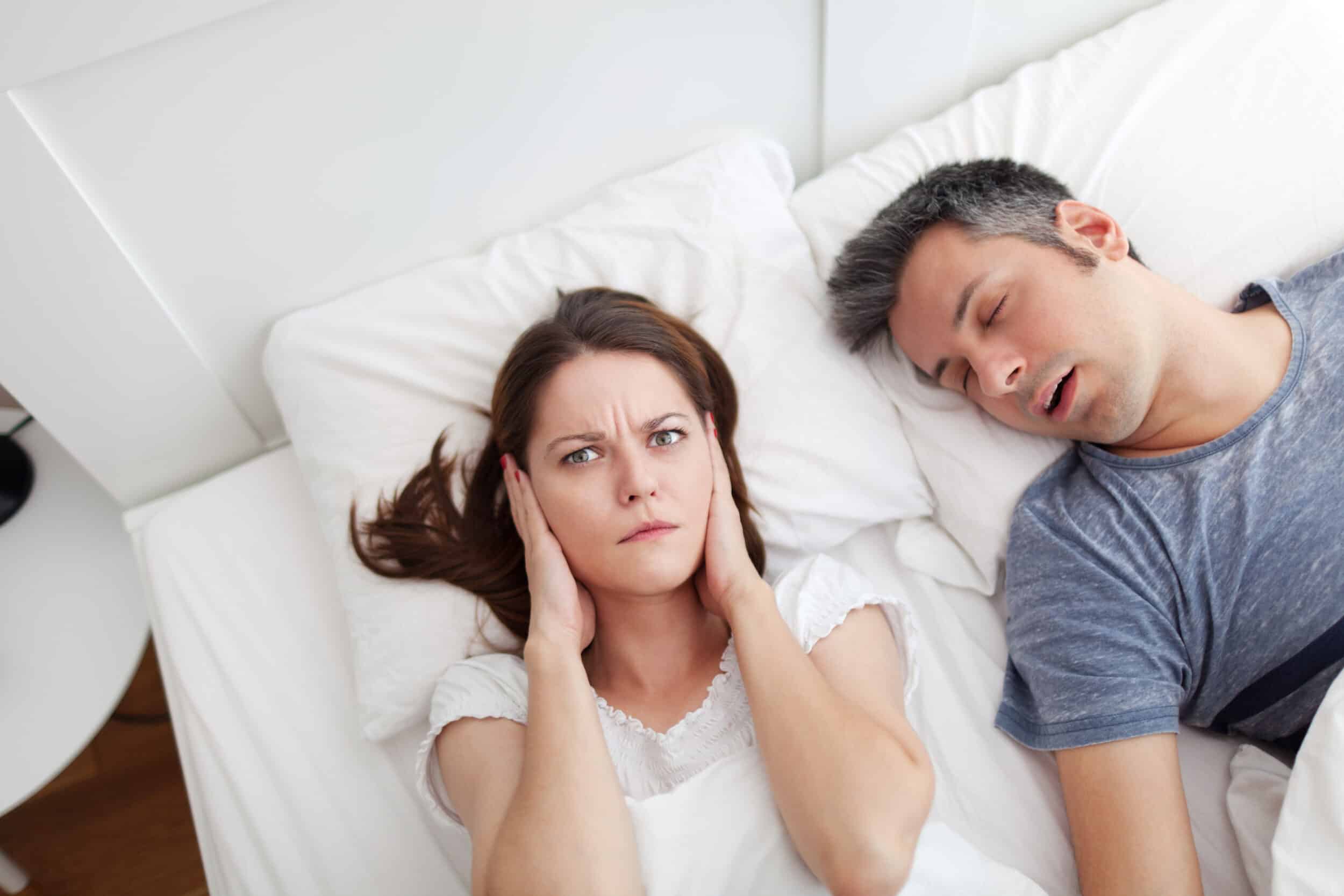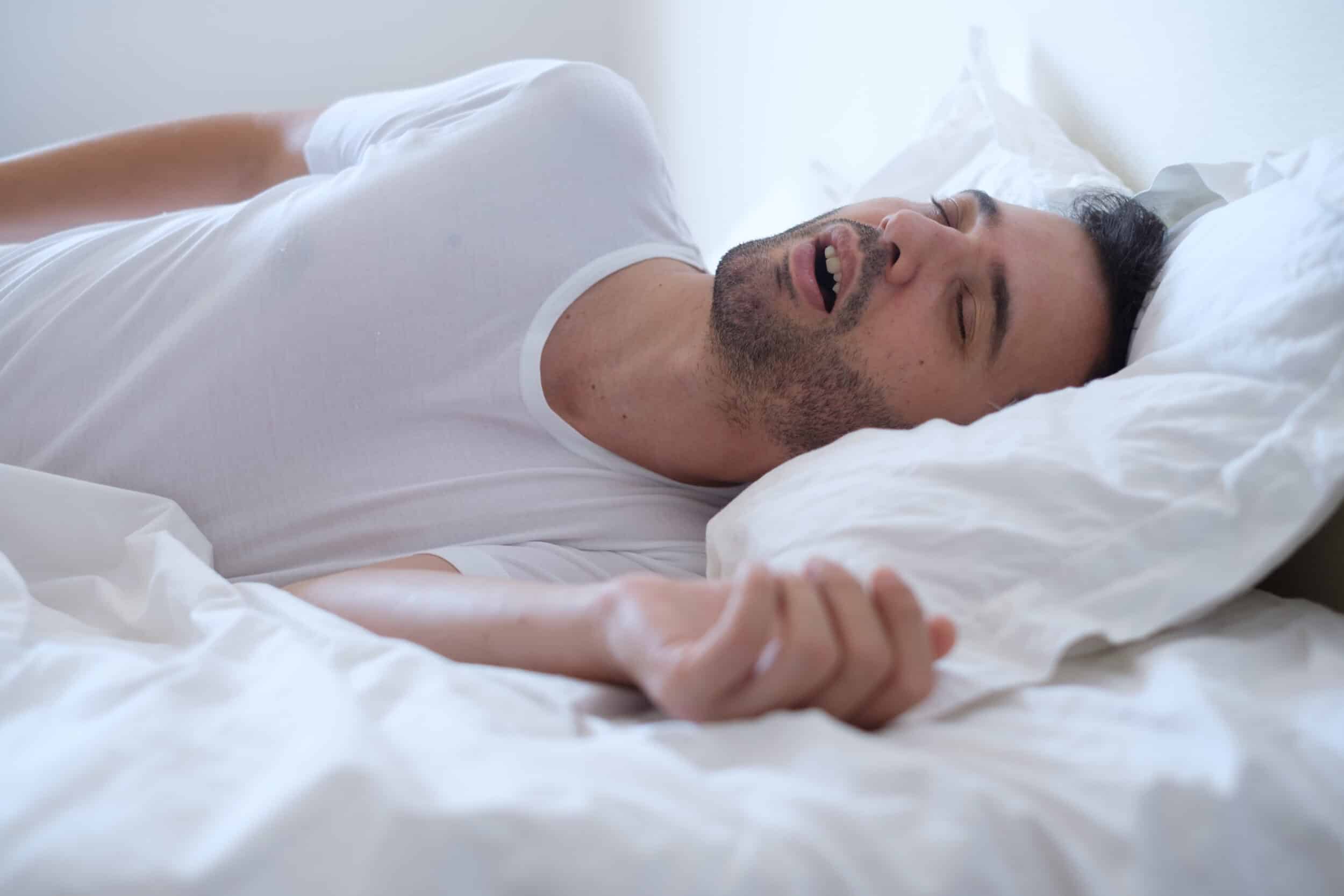Do you snore loudly or regularly wake up feeling tired, even if you get a full night's sleep? You may be dealing with sleep apnea — a serious and often undiagnosed condition that can impact your health and quality of life.

At Prima Medicine, a state-of-the-art primary care practice in northern Virginia, we offer personalized sleep apnea treatment to help you breathe more easily and sleep better. Our team, which includes medical doctors, physician assistants, and nurse practitioners with diverse specialties, works hard to provide personalized care.
About Sleep Apnea
Sleep apnea is characterized by repeated breathing interruptions during sleep. You may experience dozens or even hundreds of pauses throughout the night.
There are three types of sleep apnea:
- Obstructive sleep apnea (OSA): OSA is the most common form. It occurs when the muscles in the back of the throat become too relaxed during sleep, causing the airway to narrow or close and temporarily stopping breathing.
- Central sleep apnea: This type results from the brain failing to send the correct signals to the muscles that control breathing. This causes pauses in breathing without a physical blockage of the airway.
- Positional sleep apnea: A milder form of OSA, positional sleep apnea is triggered when a person sleeps on their back, allowing gravity to cause airway collapse more easily compared to when they sleep on their side.
Common Sleep Apnea Symptoms
It often takes a long time for sleep apnea to be diagnosed because people aren't aware of the symptoms occurring during the night. However, some warning signs include:
- Loud, chronic snoring
- Gasping or choking sounds during sleep
- Excessive daytime sleepiness
- Morning headaches
- Difficulty concentrating
- Mood changes or irritability
- Dry mouth or sore throat upon waking
If you've noticed any of these symptoms or if your partner has expressed concerns about your snoring, it's important to seek medical evaluation and treatment.
Risks of Untreated Sleep Apnea
Unmanaged sleep apnea can lead to serious health risks, including:
- High blood pressure
- Heart disease
- Stroke
- Type 2 diabetes
- Weight gain
- Metabolic disorders
Unmanaged sleep apnea also increases the risk of accidents due to excessive daytime fatigue and impaired concentration. Over time, disrupted sleep can affect your mood, memory, and overall quality of life as well.
Sleep Apnea Treatment Options
At Prima Medicine, we begin with a thorough assessment and may recommend a sleep study to confirm the diagnosis. Treatment options may include:
- Lifestyle changes: Weight loss, positional therapy, and smoking cessation.
- CPAP therapy: A continuous positive airway pressure (CPAP) machine that helps the airway stay open during sleep.
- Oral appliances: Custom-made instruments that reposition the jaw or tongue.
- Referral to specialists: In cases requiring surgical intervention.
We'll work with you to develop a treatment plan that fits your needs and lifestyle.
Why Choose Prima Medicine for Sleep Apnea Treatment?

Led by Dr. Chethana Rao, a Washingtonian Top Doc, Prima Medicine offers compassionate, evidence-based care tailored to each patient. We are part of Privia Medical Group and are committed to delivering high-quality, coordinated care using the latest technologies and medical insights. With same-day and weekend appointments available, we make it easy for you to get the help you need — when you need it.
Get Help for Sleep Apnea Today
Don't let sleep apnea control your life. Contact Prima Medicine at (703) 870-3750 or schedule a consultation online at one of our northern Virginia locations in Fairfax, South Riding, Merrifield, or Tysons. We'll help you find relief through personalized, effective treatment options that improve your sleep and your health.


